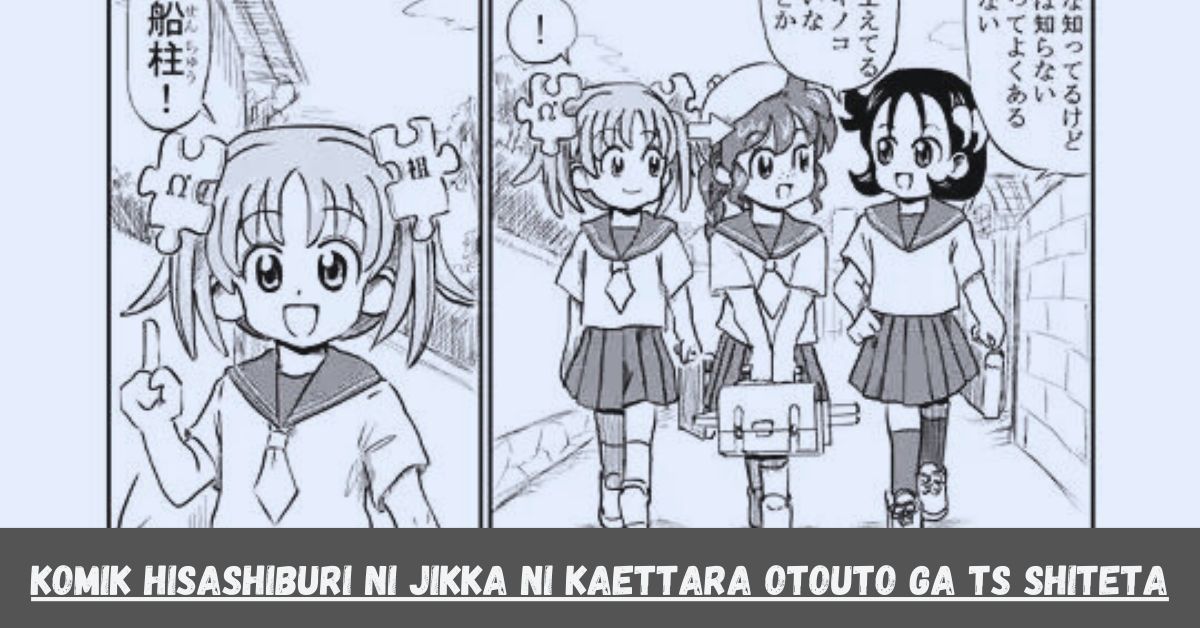I. Introduction
In the realm of linguistics and cultural expressions, there exists a fascinating Japanese phrase, “komik hisashiburi ni jikka ni kaettara otouto ga ts shiteta.” This unique phrase holds layers of meaning, reflecting not only linguistic intricacies but also deep-rooted cultural values.
II. The Significance
Understanding the significance of this phrase requires delving into the cultural context of Japan. The Japanese language often encapsulates profound meanings within seemingly simple expressions. “Komik hisashiburi ni jikka ni kaettara otouto ga ts shiteta” is no exception, embodying a blend of familial bonds, societal expectations, and a touch of humor.
III. Unraveling the Phrase
Let’s dissect this intriguing phrase. “Komik” translates to “comic” or “humorous,” “hisashiburi” means “long time no see,” “jikka” refers to “home,” “kaettara” translates to “return,” and “otouto ga ts shiteta” means “brother had done.” Combined, it paints a picture of a humorous situation when returning home after a long absence, involving a mischievous brother.
IV. Historical Relevance
Origins of this phrase can be traced back through Japan’s rich history. It has evolved over time, shaped by cultural shifts and societal changes. The phrase encapsulates the essence of familial ties and the importance of humor in Japanese communication.
V. Language Nuances
To appreciate this phrase fully, one must grasp the nuances of the Japanese language. The specificity of each word adds layers of meaning, making it a challenge to capture its essence in translation.
VI. Impact on Relationships
The phrase reflects the dynamics of family relationships in Japanese culture. It hints at the familiarity and camaraderie between siblings, emphasizing the importance of humor in interpersonal connections.
VII. Societal Implications
Beyond the familial context, the phrase mirrors broader societal values. It sheds light on the Japanese appreciation for wit and humor even in everyday situations, fostering a culture that values lightheartedness.
VIII. Pop Culture Influence
Instances of “komik hisashiburi ni jikka ni kaettara otouto ga ts shiteta” can be found in Japanese media and entertainment, further embedding its significance in popular culture. It has become a cultural touchstone, recognizable to many.
IX. Common Misinterpretations
Despite its cultural specificity, the phrase is not immune to misconceptions. Clarifying these misinterpretations is crucial to appreciate the true essence of “komik hisashiburi ni jikka ni kaettara otouto ga ts shiteta.”
X. Language Evolution
Languages are dynamic, and so is this phrase. Examining its evolution over time provides insights into shifting cultural norms and linguistic changes in Japan.
XI. Expressions Across Cultures
Interestingly, similar expressions exist in other languages, showcasing the universal nature of humor and familial dynamics. Drawing parallels enhances our understanding of cross-cultural communication.
XII. Modern Usage
In contemporary Japan, “komik hisashiburi ni jikka ni kaettara otouto ga ts shiteta” continues to find relevance. Its usage has adapted to modern contexts while preserving its cultural roots.
XIII. The Humor Element
Analyzing the comedic aspect of the phrase unveils the importance of humor in Japanese culture. It serves as a reminder that even in the mundane, laughter can bridge connections.
XIV. Language Learning Perspective
For language enthusiasts, incorporating cultural phrases like “komik hisashiburi ni jikka ni kaettara otouto ga ts shiteta” adds depth to language studies. It goes beyond grammar and vocabulary, offering cultural insights.
XV. Conclusion
In conclusion, “komik hisashiburi ni jikka ni kaettara otouto ga ts shiteta” is more than just a linguistic curiosity; it’s a window into Japanese culture, humor, and familial bonds. Its endurance through time and adaptation to modern contexts underscore its cultural significance.
